QuestionI have a 13 year old chesnut mare, just before Christmas she wasn't herself and was always stood at the back of her stable. No horses were going out as the snow had frozen solid on the yard. She was fed the same apart from a bit of readi grass that I gave her while she wasn't having any grass. She has had this before and no problems.
On New Years Eve the vet was called out by the staff as she had colic. After the vet had been and put some fluids in her she perked up again. Now she's starting to hang her head again and not be interested. She goes out every other day as the field gets shared between the mares and geldings. She's just been going out for a few hours as theres not much grass in the field and I don't want her to get colic again.
Is there anything I can do to help her? I go up everyday to muck out and she gets ridden at least 4 times a week. Especially on days that she spends stood in her stable.
I don't feed her any supplements and she has pegasus mix for her feed as she stopped eating any chaff. This has been the same for a year now. She also has haylege and access to plenty of water. She hlso has 3 handfuls of pony nuts in a ball to play with every night.
She's stabled in a block and can see other horses around her. She hasn't got a window but can see through the opposite neighbours window but she's never had a window in her stable before.
Is there something I could add to her feed or supplement?
Many thanks
Steph
AnswerHi Steph,
Thank you for your question. From the sounds of it, your horse had suffered an impaction colic?? That's generally the case when vets administer fluids, as opposed to pain killers and ant-acids as is the case with gas colics.
Impaction colics are a result of undigested/unfermented feed becoming blocked in the hindgut, and can be be the result of a few different conditions. Impaction colic can be the result of dehydration, where the shortage of water in the hindgut leaves solid (water devoid) digesta unable to seep from the hindgut and out through the remainder of the large intestine...which is why vets administer fluids, and rightfully so. Occasionally, stall rest or reduced exercise can lead to impaction colic, as a horse's digestive system relies, in part, on motion to move food through the system. Your forages could be unfermentable to begin with, and because it could not be broken down, the mass of feed is too large to pass out of the cecum. This is the result of forages being too mature (or winter-killed), and their elevated lignin content leaving them unfermentable by the bacteria in the cecum. Or, there could be an imbalance in the forage digesting bacteria of the hindgut, leaving insufficient numbers of bacteria capable of breaking down forages as they should...again creating a mass of food that blocks the cecum. Impaction colics in these last two scenarios can be difficult to clear up if the cecum has become packed with unfermented feed, where the first treatments only clear up a portion of the problem. As an example, our area suffered very poor hay producing summers for 3 years in a row a few years back. Being Canadian, we need hay for the horses over the winter because our pastures are dead and covered in snow. By the third winter, the local vet clinics experienced near epidemic levels of impaction colics...some so severe that the cecums were literally bursting with solid food. I know that you have had an unusual season of snowstorms, which 'kills' the pasture forages and renders them unfermentable. I'm thinking this may be a pattern at the root of your horse's colic concerns.
In the first case of dehydration, the solution is to ensure adequate water intake. You have indicated that your horse has access to adequate quantities of water, but you're going to want to make sure she is drinking enough of it. A horse should drink a minimum of 1 gallon of water per 100lbs of body weight, more with exercise, so monitoring intake may be a good idea. Cold weather tends to inhibit water intake (horses drink more water when it's temperature is between 10-15 degrees celsius), but adding loose salt to the diet (1/8 cup/day to start)stimulates both water intake and water retention. Your exercise regime should eliminate the concern over lack of turnout, and so is probably not a contributing factor. The last 2 possibilities, mature forage or bacterial imbalance in the hindgut, can be remedied in the same manner. Administering a good quality probiotic will help improve the ease with which your horse ferments forages, and will help re-populate the bacterial population in the hindgut...and keep it stabilized. My probiotic of choice is Alltech's 'Lifeforce Formula', which you can order directly from them. Barring that, at least choose probiotic that is yeast based to help with cecal bacteria levels. If you think forage quality is playing a role in your horse's colic concerns, you may want to look at changing at least some of the forage. Feeding some beet pulp as a forage replacement is a useful tool where quality hay or pasture is in short supply.
I hope that has been of some help, and I hope your horse is feeling better soon.
Thanks, Corlena

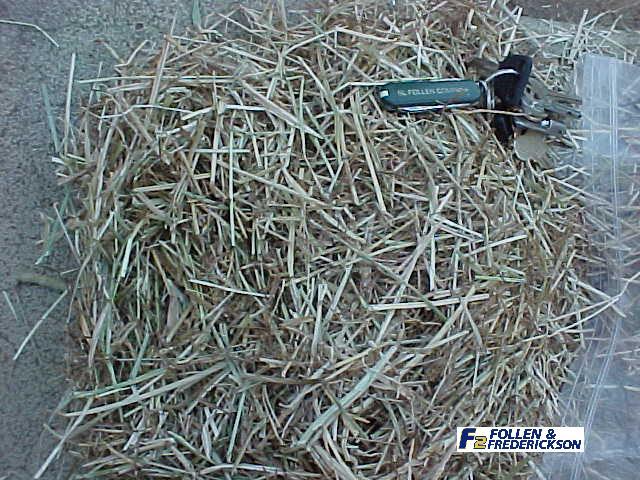 this hay
Question
this hay
hello, what type of hay can this be?
this hay
Question
this hay
hello, what type of hay can this be?
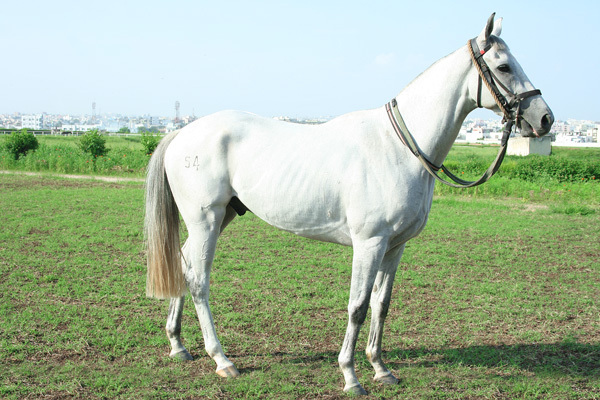 guessing the horse weight seeing it
Question
guess weight
hello maam. this is a thor
guessing the horse weight seeing it
Question
guess weight
hello maam. this is a thor
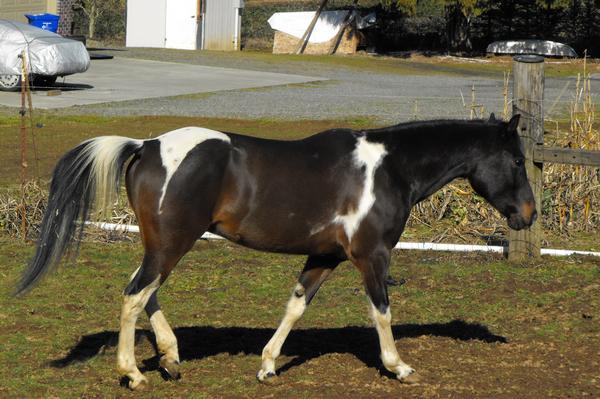 loss of appetite
QuestionElliott
QUESTION: i have a question abou
loss of appetite
QuestionElliott
QUESTION: i have a question abou
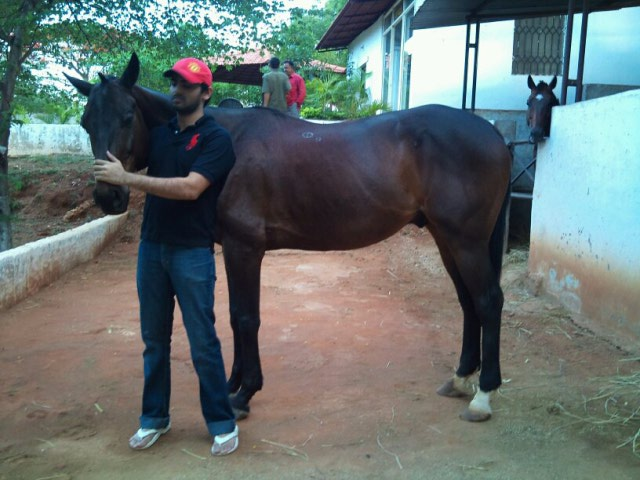 weak horse
Question
weak horse
hello maam? does this horse
weak horse
Question
weak horse
hello maam? does this horse
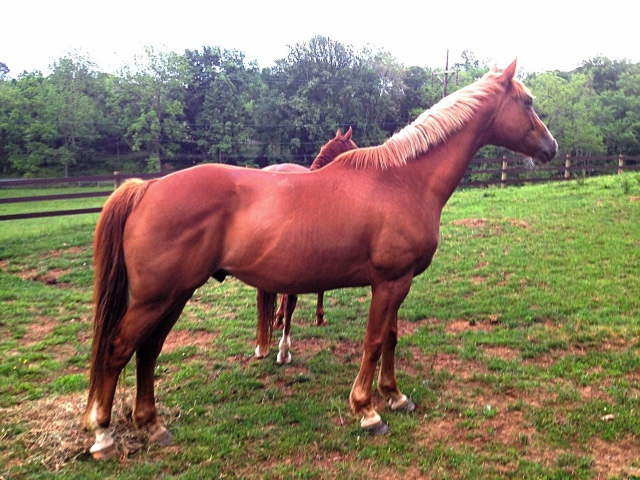 HELP WITH MY HORSE UCLERS PLEASE!!!
Question
Prince Charlie Horse
Hello! I am trying
HELP WITH MY HORSE UCLERS PLEASE!!!
Question
Prince Charlie Horse
Hello! I am trying